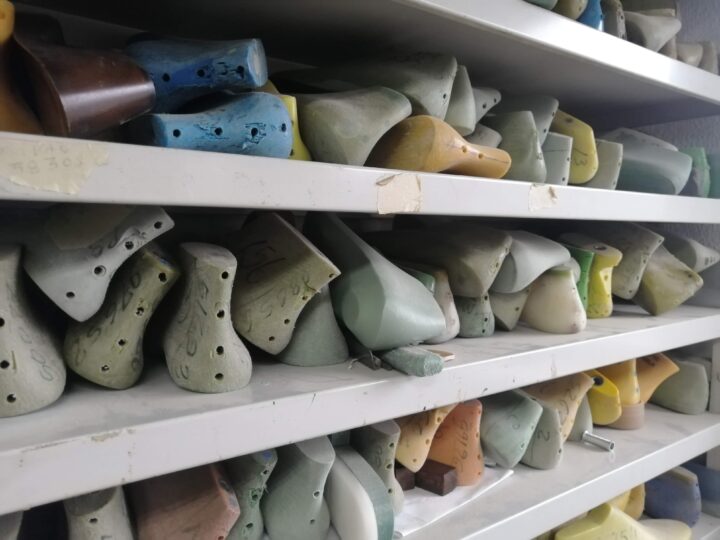Are you dreaming of creating your own shoe brand but worried about language barriers?
Good news: you can manufacture shoes in Portugal without speaking Portuguese!
Let’s dive into why this is possible and how you can make it happen.
The Universal Language of Shoes
While Portuguese may not be necessary, fluency in “shoe language” is crucial. This industry-specific vocabulary is what truly matters when communicating with manufacturers.
Here are some key terms you should know:
– LAST: A three-dimensional form shaped like a human foot, used to create the shoe’s internal shape. It’s crucial for determining fit, comfort, and style of the shoe.
– LEATHER vs. SUEDE: Leather is the outer layer of animal hide, known for its durability and smooth finish. Suede is made from the inner layer of the hide, resulting in a softer, more velvety texture.
– CEMENTED vs. VULCANIZED:
– Cemented construction involves attaching the upper to the sole using strong adhesives.
– Vulcanized construction uses heat and pressure to bond a rubber sole directly to the upper, creating a durable, flexible shoe often seen in sneakers and casual footwear.
Understanding these terms allows you to effectively communicate your vision, regardless of your native language.
Why Portugal?
Portugal has become a powerhouse in shoe manufacturing, exporting 67 million pairs of shoes to over 170 countries in 2024. The country’s shoe industry is known for:
– High-quality craftsmanship
– Innovative technologies
– Sustainable practices
– Flexibility in production sizes
Bridging the Communication Gap
While many Portuguese manufacturers speak English, here are some tips to ensure smooth communication:
1. Use visual aids like sketches and mood boards
2. Provide detailed technical specifications
3. Learn key industry terms in English and Portuguese
4. Work with a sourcing agency if needed
Taking the First Step
Ready to launch your shoe brand in Portugal?
Here’s how to get started:
1. Research Portuguese shoe manufacturers
2. Prepare your designs and specifications
3. Reach out to potential partners
4. Consider enrolling in a mentorship or course with a footwear expert to learn everything you need for effective communication with factories.
A mentorship or course can provide you with essential technical knowledge about shoe construction, industry terminology, and best practices for working with manufacturers. This expertise will help you communicate your vision more clearly and professionally, potentially saving time and money in the development process.
Remember, the key to success isn’t speaking Portuguese – it’s understanding the shoe industry and clearly communicating your vision.
Conclusion
Don’t let language barriers hold you back from creating your dream shoe brand. With the right knowledge and preparation, you can successfully manufacture shoes in Portugal, regardless of your native language.

